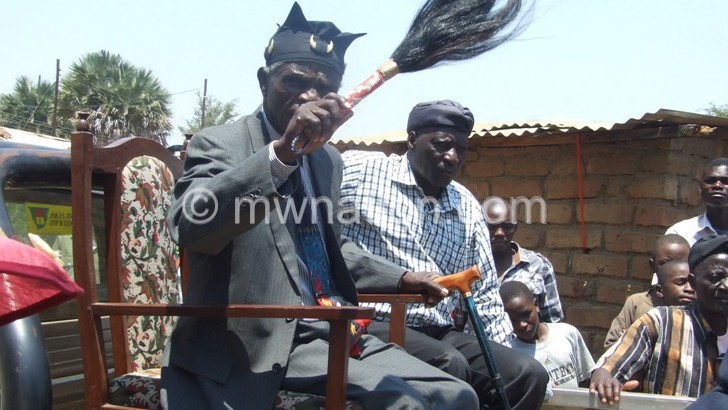Joyah’s genius inside out
 It is tempting to misinterpret Joyah’s message for the importance of culture as an argument against homosexuality, but educationist DR STEVE SHARRA suggests otherwise. He writes.
It is tempting to misinterpret Joyah’s message for the importance of culture as an argument against homosexuality, but educationist DR STEVE SHARRA suggests otherwise. He writes.
When your first movie is as phenomenal as Shemu Joyah’s Seasons of a Life, it becomes inevitable that your next movie is judged in comparison to the first. Which is what is happening with Joya’s second movie, The Last Fishing Boat.
The first was a love story culminating into a deeply Malawian philosophy of what lies at the heart of motherhood. The second is a love story unfolding around the complex vortex of polygamy, serial monogamy, homosexuality and interracial love.
British novelist Richard (played by Irishman Robert Loughlin), touring Malawi with his fiancé, Elena (Czech musician Tereza Mirovicova) get caught up in a love triangle on the shores of Lake Malawi.
The novelist is infatuated with Abiti Anefa (Flora Suya), third wife of fisherman CheYusufu (Hope Chisanu). He leaves money for her on the beach and pays for her groceries. She takes the money, but gives it away to children and beggars.
Richard learns how to play bawo. He wins his first game, but on subsequent matches, he keeps losing. Unable to accept defeat, he wants to buy Yusuf’s bawo board. They haggle over the price inside Yusuf’s house. Abiti translates for both of them.
Taking advantage of the language barrier, Richard openly declares his love for Abiti. She orders him to leave, while keeping Yusuf in the dark. When The Last Fishing Boat showed at the Kamuzu Institute for Sports in Lilongwe recently, Abiti’s prudent yet deliberate mistranslation drew a loud ovation from the audience.
Meanwhile Elena gets her vengeance by starting an affair with Yusuf’s son, Mustafa (Robert Kalua). He is a tour guide and also a male stripper. He tells Elena he is 30 percent gay and 70 percent straight.
“I followed my heart,” he says.
Elena’s time with Mustafa gives the movie its most x-rated scene.
The movie’s most philosophical moment comes when Abiti confronts the hypocritical claims made by critics of polygamy. She tells Richard that as an openly polygamous man, Yusuf treats her with respect, unlike Richard who throws money at her in hopes of luring her. Polygamy, she tells him, is no worse than serial monogamy.
One evening, the village’s men see Abiti entering Richard’s house, where she has gone to plead with him to pay for the bawo. Believing that Abiti is secretly seeing Richard, the men mobilise themselves and alert Yusuf. Together with Elena, brandishing burning torches, they storm the house. Yusuf finds both Richard and Abiti inside and stabs them.
Some reviewers have suggested that the inclusion of homosexuality in the film is a lament for cultural degradation. This is not borne out by the perspective presented by Mustafa. He wonders why homosexuality is punishable by law, yet adultery is not.
“Why do some people get angry on behalf of God?” he asks.
It is tempting to misinterpret Joyah’s message for the importance of culture as an argument against homosexuality, but Mustafa’s musings suggest otherwise.
Joyah told reporters after the showing that although the issue of homosexuality was being championed by donors, homosexuality was a Malawian issue, historically and traditionally.
Whether Seasons of a Life is a better movie than The Last Fishing Boat is probably moot.
They are two different movies, with two different philosophies. The genius of Joyah lies in delving deep into the human psyche to draw out the contradictions that define us, both weaknesses and strengths. In Seasons of a Life, it was the metaphysical depth of motherhood, while in The Last Fishing Boat, it is the core of cultural traditions that on the surface may appear meaningless, but whose functions give us pause for reflection.





